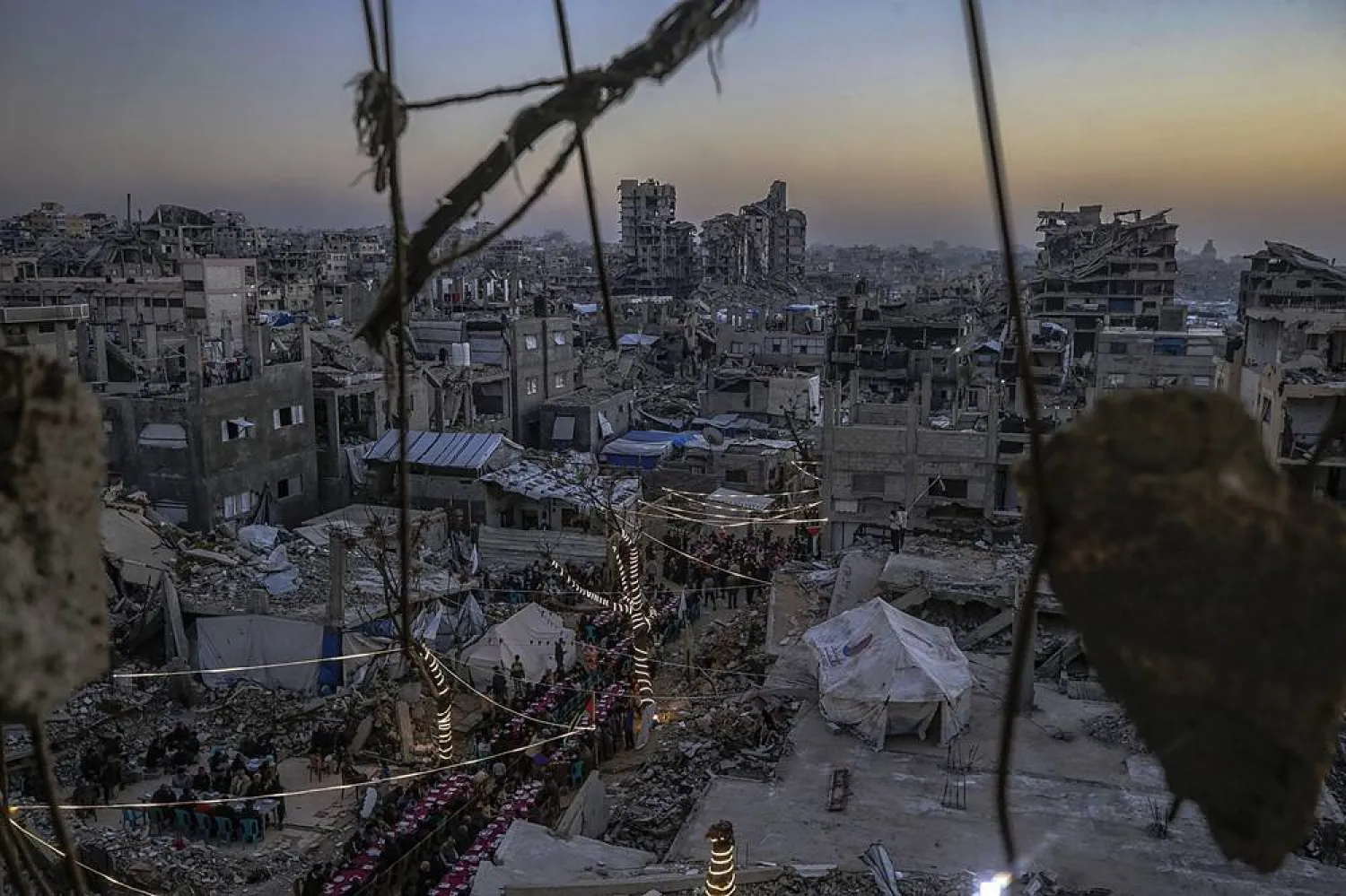The families of Palestinians killed in an air strike in the occupied West Bank city of Tubas held funerals on Friday after Israeli forces withdrew following their latest raid in the territory.
The Israeli military said in a statement on Wednesday that its forces were engaged in a "counter-terrorism operation" in the area of Tubas, in the northern West Bank.
The official Palestinian news agency Wafa said the military withdrew Thursday evening, allowing the funerals to go ahead.
The four men buried in Tubas on Friday were killed in an air strike at dawn on Wednesday, the Palestinian Red Crescent Society said.
A fifth fatality from the same strike was buried on Friday in Tamoun, also in the northern West Bank.
The Israeli military said in its Wednesday statement that Israeli aircraft had "struck and eliminated a terrorist cell consisting of five terrorists armed with explosives who posed a threat to (Israeli) forces".
On Friday morning, hundreds of people walked through the streets of Tubas alongside the four bodies hoisted on stretchers and wrapped in white cloth.
Some in the crowd waved the green flag of the Palestinian movement Hamas and gunfire punctuated the chants of the mourners.
"I woke up in the morning to the sound of an explosion," Ahmed Sawafta, father of one of the dead men, told AFP, describing the strike on Wednesday.
"My brothers came and told me that Yassin had been martyred," he said, referring to his son.
Osaid Kharaz, who identified himself as a Hamas activist, told AFP at the funeral that Israel "is attempting to impose a new reality and undermine the popular support for the resistance (to Israeli occupation) in the West Bank."
- 'Full strength' -
The military will use its "full strength" to strike Palestinian gunmen in the West Bank, Israeli Defense Minister Yoav Gallant said on September 4, amid a large-scale operation in the north of the territory that killed dozens.
Israeli forces this week also carried out operations in the northern West Bank governorate of Tulkarem.
The Palestinian Red Crescent and the health ministry both reported that one volunteer paramedic and a young woman were killed during an Israeli raid there on Tuesday.
The health ministry also reported three killed near Tulkarem city on Wednesday "as a result of an Israeli air strike on a vehicle". The Palestinian Red Crescent gave the same toll.
The armed wing of Palestinian Islamic Jihad said in a statement that the three killed in the strike were its fighters.
The Israeli military said on Wednesday its air force had "conducted an aerial strike during the counter-terrorism operation" in Tulkarem, without specifying the target or reporting casualties.
Wafa reported that Israeli forces also withdrew from Tulkarem on Thursday and that funerals were held there on Friday.
Israel has occupied the West Bank since 1967 and has ramped up deadly raids in the territory since Hamas's October 7 attack on southern Israel sparked the war in Gaza.
According to the Palestinian health ministry, at least 679 Palestinians have been killed in the West Bank by the Israeli military or settlers since October 7.
At least 24 Israelis, including security forces, have been killed in Palestinian attacks in the territory during the same period, according to Israeli officials.









